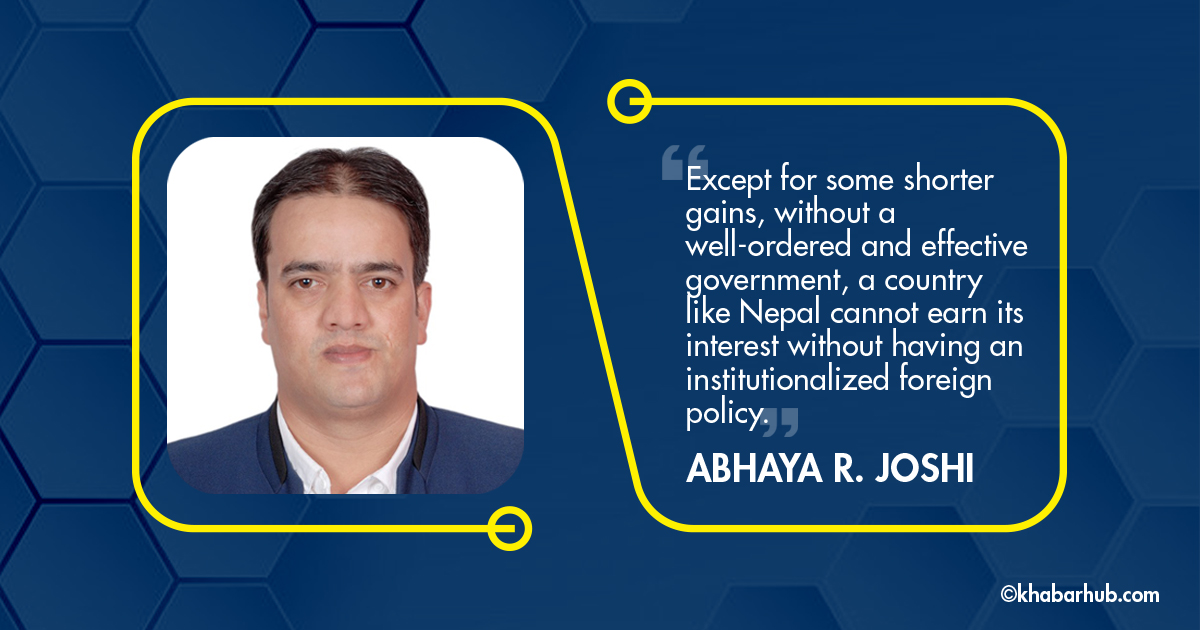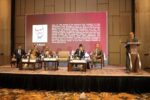Nepal and India, indeed, harbor deep religious, cultural, social and fraternal ties for centuries.
But, not long ago, when India encroached on Kalapani, Lipulek and Limpiyadhura (claimed by Nepal) and included them in its political map, Nepal protested and took initiative for resolving the row through dialogue but India kept on ignoring it.
Then, Nepal as tit-for-tat also issued a new map showing Limpiyadhura, Lipulekh and Kalapani within its territory.
Despite such an ongoing contemptuous situation between the two countries, the Indian Army Chief- General Manoj Mukund Naravane is on a three-day visit to Kathmandu.
Many experts have seen this visit as the starting point to mend the relationship, but I put a different opinion. Rather than military diplomacy, dialogue at the political and diplomatic level play a key role to find a long-lasting solution.
The use of military diplomacy to secure Nepal’s key national interests has a long history. Lately, military diplomacy was used to resolve the tensions between Nepal and India after the undeclared blockade put by India on Nepal, during post 2015-earthquake.
Except for some shorter gains, without a well-ordered and effective government, a country like Nepal cannot earn its interest without having an institutionalized foreign policy.
Nepal government had resorted to military diplomacy to ease the situation after the unannounced blockade by India in support of some contentious issues on Nepal’s new constitution (2015) raised by the then some Madhes-based parties, though it was solely internal affairs of Nepal.
It is said that the then government of Nepal, led by the current Prime Minister KP Sharma Oli had directed the then Nepal’s Chief of Army Staff (CoAS) to find a way to ease the situation viz-a-viz lift the blockade through military diplomacy.
The use of the military was also observed during the Sugauli Treaty (1816), Indian Sepoy Mutiny (1857), the tripartite agreement between Nepal, British and India (1947), and the Treaty with Tibet (1856).
There is no denying the fact that military diplomacy is a part of the country’s foreign policy, however, it is rare for governments in any part of the world to go beyond their foreign policy and pursue military diplomacy to resolve the conflicting issues between countries.
In fact, Military diplomacy is not complete in itself, but only a part of foreign policy. Unlike this, Nepal’s foreign policy seems to prevail by military diplomacy.
Nepal’s military diplomacy is good and reliable with its neighbors and other countries so far, but it can’t rely solely on it because it is not sustainable and beneficial in a long run.
Nepal’s foreign policy should preside our military diplomacy while competing for more for human security in terms of economy, environment, health and many more.
A vibrant and healthy military relationship (with others) could provide the desired influence and access to the country and decision-makers, but this ultimately favors the big and strong countries in the long run.
In the case of India, it does military diplomacy towards Nepal through equipment transfers (through sale, aid, or gifts), defense and military infrastructural development and human resource development.
On the side of Nepal, the same is not true. Then what options are left for us?
We should only focus on the countenance of the complete sovereign — not merely in the sense of having legal independence and international recognition but in the full sense of national self-possession, characterized by the confidence of its own identity, know its political and other interests, recognize both its strengths and its weaknesses, and have the support of an informed and united public.
Except for some shorter gains, without a well-ordered and effective government, a country like Nepal cannot earn its interest without having an institutionalized foreign policy.
But instead of promoting military diplomacy to resolve bilateral rows, we should move ahead with our strong foreign policy, imperative in the issues of national pride and importance.
Hence, this is, I believe, a profound mistake of Nepal to always promote military diplomacy to settle the odds. It is short-sighted to consider military diplomacy as the overall policy tactics.
It is and should be the government that makes agreements, that has the authority, and responsibility, to bind a nation, to others.
In the nutshell, today, economic well-being, good governance and social security, not military talks, should be more important issues in bilateral as well as international relations.
Nepal’s foreign policy should preside our military diplomacy while competing for more for human security in terms of economy, environment, health and many more.
Therefore, it is better to take the upcoming visit of General Naravane just as a part of the tradition between the Nepal Army and Indian army of presenting the honorary title of general to the CoAS of one another country, rather than portraying it as a bigger political exercise to settle the national interests of the two countries.
In fact, these kinds of highest-level military visits between Nepal and India, they are good for better defense relationships.
But instead of promoting military diplomacy to resolve bilateral rows, we should move ahead with our strong foreign policy, imperative in the issues of national pride and importance.
(Abhaya R. Joshi is the Chairperson of the Nepal Center for Security Governance)









Comment